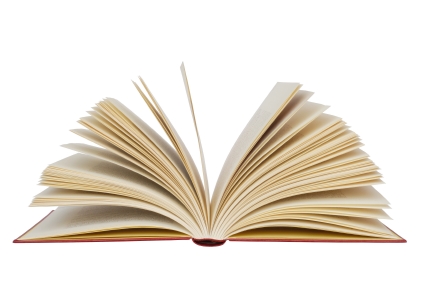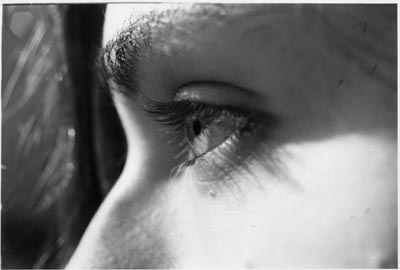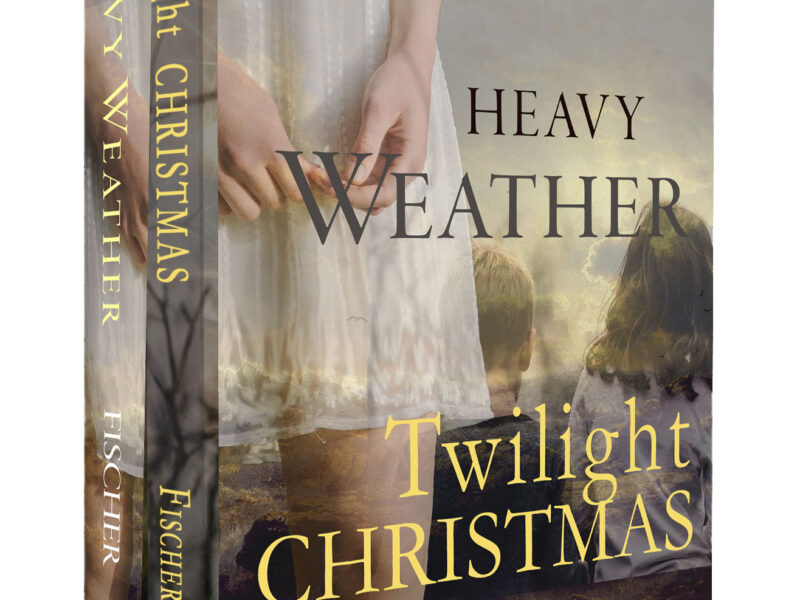Sailing out of Darkness is back in my editor’s hands (finally), so I’m taking a moment to toss out some thoughts that have been fogging up my non-writing/editing moments ever since I discovered this thing called Boomer Lit and joined a group to learn more. I hope you’ll read to the end and talk to me about this whole genre/non-genre thing. I’d really like to know what you think.
Women’s Fiction, Boomer Lit, or Whatever This Is
We ride out our solitary lives looking for family, for community, for a place that recognizes us and that we recognize. A place in which to fit. Our niche.

When I first began playing with words (longer ago than some of you have years, but that has less to do with the first crayon in my hand than with longevity), I just wrote. I wrote poetry because I love words. I wrote essays because I love fitting words together to find meaning. I wrote meaningless practice bits because my various creative writing teachers forced my hand.
And then I found stories.
Short stories are a specialization I’ve never mastered. You’d think the editor in me, the one who pares down to essentials in the non-fiction world and looks at rhythm and heft in the fiction world, would have loved the challenge of the short story. You’d be wrong.
Once I sat down to write a novel, I fell in love. Completely and utterly in love with creating worlds and lives as I dug more deeply into motivation and character. I had much to learn. I’d seen for so long through a sculptor’s eye or a poet’s eye, and now the focus broadened. I had to enlarge, expand, explore larger structures.
I began to write stories that fascinated me without a single worry that they might require classification. A genre? A type, for heaven’s sake? Who cared? They were stories.
My second agent announced that I needed a demographic, a slot in which to fit. I could call it anything I wanted, but call it something I must.
And so I began my research into the available slots.

The rebel in me (down, down, rebellious spirit) suggested we just call them stories. You know, novels. That didn’t fly. Because readers (and, ahem, editors) want to know what they’re buying.
But the problem with slots and designations is that they have club rules—made up somewhere along the line by someone—so adherents won’t cry foul.
Right. But if you’re writing story and concentrating on that and on your characters, which do you follow? The characters and their story or the rules of genre?
You see my quandary. I write romantic stories, but the romance adherents (especially the editors) would say I do it all wrong. So, no fit there. I occasionally toss in a bit of suspence, but the suspense isn’t all that suspenseful, as it’s not the goal. I’ve been accused of writing literary fiction, but if so, I probably step off the edge, straddling the just-for-fun.
And then someone, maybe my agent, suggested I call my work Women’s Fiction. Well, excellent. I’m a woman. I write what I like to write and what I like to read. Good. I’ve got a home. My own niche. And I’ve a tribe of other women’s fiction writers out there.
(Hey, WFWA! Women’s Fiction Writers Association)
And then, lo and behold, last week I found another category called Boomer Lit. I thought, that works. I’m a boomer who writes women’s fiction. I was on to something here.
Well, maybe and maybe not. Boomer Lit is about boomers. (What a horrible name. I read it and want to add an “L” in there and toss us all back about a century.) If my characters aren’t closing in on the big 5-0, I’m out of luck.

I’ve nothing against writing about women in my age bracket. I probably will someday (and Sailing out of Darkness probably qualifies: Sam is 45–not quite to hot flashes yet).
I need to ask you something. I imagine your answers will be affected by your age, gender, and genre preference, but I’d like to hear your thoughts anyway. Let’s talk.
1. Do you want only to read about characters in your age group? (It seems to me that To Kill A Mockingbird would have failed miserably if this were the case.)
2. Do you read in a specific genre? If so, what rules do you think important for that genre to follow?
3. When you read a genre piece, does it bother you if the author steps beyond the boundaries and colors outside the lines?
4. If you’re a writer, do you force your work into particular molds to be accepted? To fit a publisher’s rules? How does this make you feel?
Inquiring minds would like to know.

I’ll read anything that catches and holds my attention. A few things have changed as I’ve grown older. I used to read straight romance. Now, I don’t like romance all that much. “boy meets girl, boy wants girl, girl hates boy, boy want to change that, girl gets into trouble, boy rescues girl, girl sees the error of her ways” Thats a simple formula, but it applies to 98% of straight romance and really, how long can you read that? Especially at our age when we know it’s NOT that simple. So give me a good mystery, courtroom drama, thriller, even romantic suspense…character age has little to do with the quality of a story.
As a writer, I write stories about a cast of women 13-60. I had no idea it fit into a genre (women’s fiction) until someone told me. It’s just what God gave me to write. It might also fit into the boomer lit very well.
You’re cute, Sharon. That’s exactly what happens in romance, isn’t it? And life is never that simple. And I enjoy all sorts of books, but few that are actually genre-driven.
Thank you so much for stopping by and sharing your thoughts with me. I love to hear about a reader/writer’s evolution and growth.
I feel exactly the way you do about labels. I have never liked them and that’s just as well b/c they don’t stick to me very well (pun intended.) Halfway through reading this post, my rebellious nature reared up and said, but why can’t we do this a different way? Why don’t we create an author’s “genre” instead? Cuz mine would be the Rebel Genre. Yup. Now that’s a label I can live up to. I write for me, not a specific audience and the odds are that if you like me, well, you would probably like my book too–but you will never know unless you take that risk. Kinda like the chocolates in the chocolate box. Some peeps read the “cheat sheet” but it’s a whole lot more fun to guess.
Best of luck, Normandie. I think Woman’s Fiction casts a wide enough net for starts, but then it will be word of mouth that will bring the bulk of your readers. Because once they get to know you–they will love you.
D. D. Falvo recently posted..JUST DRIVE (Or How to Live With Your Muse) ~ Redirect
Denise, I’m in. Rebel Fiction. Woohoo!
As you said, if they like you, they’ll probably like your stories. Well, I like you, so one sale assured, my friend–once you get that tome out there and available!
Thanks for bringing up this subject, Normandie, it’s an interesting one.
I’m from the next generation on from boomers, the baby busters. The labels have limitations but i’ve found them helpful in providing broad sweeping characteristics to distinguish folks born at certain times culturally from others.
With writing, i think the issue involves why you write and what you want your writing to accomplish. Why are u writing a book to publish as opposed to writing for yourself alone? Are u aiming for a bestseller? Or for some glowing reviews from quality media outlets? For a sense of accomplishment? For a book you personally can be proud of? Is the subject of the book something close to your heart that you’re compelled to communicate to others? Who do you want to read your book and why? Can u reach a larger audience for your book without compromising your vision? Does what you write matter to you, will it to others?
When these questions are resolved, you then write according to what your answers are. If you want younger women to read your book, it helps to write in a language and style they’ll connect with, removing any unnecessary obstacles. For example, if the main character is age 62 and you want readers aged 20 – 35, you may need to build into the story bridges to enable the readers to connect. Most 25 year olds don’t hang with 62 year olds, so you have some challenges to overcome.
Recently I’ve attended a writers conference, hung with various writers, and studied a little about the industry. The common thread I pick up is the necessity to write from the heart, with passion and a sense of the value of what you are writing. When that is done, and that being the much bigger task – then start putting time and energy into marketing it to the audience who need to read it. Marketing it in a manner that the audience will connect with. If you’ve written something you are proud of, that has value, is compelling, then the audience will be found/will find it.
Alternatively, if you simply wanna write a bestseller and that’s it, I suggest study hard the bestsellers from a few different years and without plagiarism of course, simply be a copycat! I met a guy recently who did just that. He read the bestsellers, then wrote the book, found an agent and sold the book for a stack of money. He now has the money and absolutely no interest in what becomes of the book he wrote.
River, great points.
I like what Denise said in her comment: “I write for me, not a specific audience and the odds are that if you like me, well, you would probably like my book too–but you will never know unless you take that risk.” Not everyone will like us, but we stand a chance of reaching those who might.
I know when I write a story, I put my heart into it. I just hope those who pick up one of the books will see that heart and respond to it.
I’m sure that if a person figures out a genre and fits to that mold, he’ll have a much easier time finding a specific audience–at least he will if he hones his craft. Or as you say, if he learns the tricks and uses them.
Whereas you attempt to stifle your rebellious spirit, I embrace mine. 😉 In that I don’t adhere to the stringent writing requirements of specific genres and the ever-irritating restrictive “rules”. Not that they don’t have a place or serve a purpose, but generic and unflinching devotion to them make for formulaic and boring writing/stories.
1. Do you want only to read about characters in your age group? (It seems to me that To Kill A Mockingbird would have failed miserably if this were the case.)
I want to read interesting characters. Age only matters if somehow it makes for boring.
2. Do you read in a specific genre? If so, what rules do you think important for that genre to follow?
I read in a few very specific genres and don’t stray too far from them. I prefer various styles and original approaches to those genres. If they stick too close to the rules, usually they wind up being predictable/boring.
3. When you read a genre piece, does it bother you if the author steps beyond the boundaries and colors outside the lines?
Please, please do.
4. If you’re a writer, do you force your work into particular molds to be accepted? To fit a publisher’s rules? How does this make you feel?
Believe me, I’ve tried. Not gonna happen. Just can’t do it.
Nicole recently posted..Sunday’s Offerings
Cutie, Nicole. You think I’ve stifled my rebellion? Hah! Ask Michael! (Okay, when I must, I do. But it’s only if I “get” the reasons and respect them.)
Thanks for your answers. As always, very thoughtful.
Ooooh, this is a subject that always gets my blood boiling! I could go on and on, so please stop me when I start repeating myself. Of course I like reading about all sorts of ages, all sorts of characters – they just need to be interesting. And no, having all of the cliches of a particular demographic (which I happen to fit) is not going to make them interesting.
I do like certain genres better than others (you know me and my old love for crime), but I am ready to explore anything. And in fact I admire books that manage to transcend their genre or straddle several. Again, all these categories become meaningless if the book is well written.
But the final point is a critical one: should you adapt to fit publisher’s rules? The rules themselves are clearly nonsense and every now and then a book or author will prove that. But most of the time it works better to try and subvert things more subtly, from the inside. I don’t know how easy it is to write something that you are not and only gently push at boundaries. But I do remember what the agents stated quite bluntly: ‘Ask yourself: who wants to read the book I am writing? And if the answer is no one, then write a different kind of book. Or make your peace with that.’
Marina Sofia recently posted..Enough of February (Haiku)
Ah, Marina Sofia, so glad you stopped by. And I hope the boiling blood will prove conducive to marvelous creativity today!
Good quote, too, about who may want to read the books we write. If we move the discussion from the purely philosophical and get down to answering the agent’s question, I think we also must move past a concern for genre and into one that involves how ready we are for publication–or whether or not we’re even aiming at publication. As an editor, I receive submissions that just aren’t (even remotely) ready or that should be self-published and distributed to the immediate family–who will probably be the only readers for that tome.
As writers, we certainly must question ourselves about readiness and about form, which should lead us to consider who will be our readership. I think the readiness, the general attraction of a story, will only be determined by shopping the story out to a good critique group. (Good being the operative word) Agents and publishers use designations so they can sell a story. (Of course, in my editor’s hat, I’m looking for a good story, well told, without prejudice toward genre or no genre.)
Genre designations have set rules, and as I tried to say (though I may not have done that well), these rules provide a certain comfort to the reader. If he picks up a mystery, he expects to find a mystery in the story. If he picks up a romance, that man and woman better be together and happy in the end.
But I’ve been so delighted to find a larger, broader classification to act as an umbrella for my work. Women’s fiction. WF doesn’t even require me to have a female protagonist, although most will. Under that umbrella, I can write of children and men and women and young and old and anywhere in between.
I don’t think of women’s fiction as genre, and I’ve discovered that many men ignore the appellation and enjoy reading these stories as well. So, they must have a universality about them that appeals to more than just an age or a demographic.
Again, thanks for your thoughtful comments!
Indeed, we are required to fit into “boxes” purely for marketing – as another cross-genre writer, I face similar puzzlement from readers who have been asked to think in this way. Is “Blood Clay” a Southern book? Crime novel? Literary fiction? Yes, all of the above. I think all we can do is be true to the work as it comes, and trust that it will find an audience.
And if beautifully written, as is Blood Clay, it will find readers. Perhaps not the masses of readers that want one particular genre, Val, but readers who love words and craftsmanship!
I’ll read about any characters who catch my interest. I really enjoy reading a story where I feel I get to know the characters. As to genres, I read historical fiction, contemporary fiction, mystery, suspense, etc., but I do read mostly Christian. There’s just not enough time to read it all. 🙂 Again, I read more for story than for specific rules that a specific genre follows. Lately, I read what my friends write. 🙂
As a work-for-hire writer, yes, I spend a lot of time fitting my writing to guidelines and rules. Sometimes it makes the writing task harder and occasionally easier. Now, dabbling in fiction, I’m trying to just write the story and then I’ll worry about the publishers later. That said, since my first dabble is historical, I’m trying to maintain respect for the historical people, places, and culture. So I’ve been asking friends and acquaintances who write historical fiction about relevant guidelines. I do admire writers who are willing to tackle more than one genre and cross those invisible boundary lines.
4. If you’re a writer, do you force your work into particular molds to be accepted? To fit a publisher’s rules? How does this make you feel?
Tracie, thanks so much for stopping here to share your thoughts. Historical fiction is certainly a popular genre, especially in the CBA. Based on your experience in the non-fiction world, I imagine you’ll have no trouble at all with the research!
As for guidelines, these will often vary with the publisher, so you may want to find out which one handles your favorite works and check into their specific guidelines. Editors want to say yes, and a writer can make this easier for them by doing careful research, writing an excellent story, and presenting a project that fits their editorial needs.
I hope you have fun with the process!
Great post, Normandie!
I’m not sure I write for a genre, unless literary fiction is considered a genre. But I’ve heard that called “mainstream fiction” too, although not sure what that means either. I wonder what “genres” Virginia Woolf or Faulkner wrote for? Or today, what genres Toni Morrison or Joyce Carol Oates are writing for? I’m thinking they write because they must, because they are writers, because these stories and characters get into their heads and must be let out.
I think I’m writing literary fiction because its main function is not to entertain but to explore more deeply what it means to be human, and perhaps shed some light on that or at least deepen our understanding, and do it in a way that touches readers’ minds and hearts, so they feel like their time reading was well spent. That’s why I read, what I’m looking for in a novel, charactors that I care about whose stories deepen my understanding of the world and perhaps help me understand myself better. And I’m looking for luscious writing that helps me see things in a new way, that makes the ordinary seem extraordinary, and the extraordinary seem familiar.
I’m looking for “art”, for something that inspires, or grabs me on a visceral level, that shakes me up and makes me think. I’m looking for “soul”, for writing that helps me see beyond the mere mortal or human, to that level of existence we all experience from time to time, that gives a deeper and richer meaning to the few years we have here on earth.
I don’t want “escapist” literature, I want to delve more deeply into what it means to be human. And if a mystery comes along with it, or romance, or humor, or adventure, or time travel, that’s okay. If the main character is a man or a boy or a girl or a boomer or a dog or a hobbit, I don’t really care. Just give me rich and meaningful and someone I can care about and i’m in. And that’s how I want to write too, but I don’t know what “genre” that is. Isn’t that every genre when it excels?
Or is genre strictly “formulaic”? Like fast food? Highly processed and packaged. Mostly fat, little meat. You pay little, you get little. One size fits all? Is that what editors and publishers want now? Is that what readers want? If so, i think we do need to rebel. Because we shouldn’t want to contribute to an industry that caters to the lowest common denominator.
Even if all I want is to escape for a few hours, why can’t it be rich and deep and meaningful at the same time? Even for a romance, isn’t that more important than sticking to a formula? Wouldn’t even the most casual reader want that over a strict struture? Isn’t that why most romance readers move on to something else eventually, because we get tired of the same old formula, we want something richer, more worthy of our time and effort?
I think our editors and publishers need to get out of the cookie-cutter mentality and help shape and evolve their disciplines to move beyond the plastic and simplistic, the one-size-fits-all, empty calorie menus they seem to be offering writers and readers alike.
deborahbrasket recently posted..Redwoods and Waterfalls – Julia Pfeiffer Burns State Park
Well said, Deborah. I think if you look around at a lot of what I’m finding in the women’s fiction market, you’ll find some books that do exactly what you ask. I recently finished reading two that make me smile. One was Barbara Claypole White’s, The Unfinished Garden, which is really a love story (not a romance) that digs into the issue of OCD. Loved the settings, the word pictures, the characters. The other was Vanessa Diffenbaugh’s The Language of Flowers. Again, gorgeous. And Athol Dickson writes literary fiction that is profound. I think you’d like his The Opposite of Art.
There are a lot of really lovely stories out there. My issue is the bracketing that a lot of editors/publishers/agents require. I understand why they do so, but it makes it difficult for those such as you and I who want to tell stories, to dig a little deeper, to touch and feel and think. I found a comfortable home within women’s fiction, but I prefer most of all to call my stories just that, stories. To let the words fall where they may.
So keep on writing the things you want to read. Dig into the place that works for you. You have enormous talent. But we each have to harness that talent so that we can find the place to soar.